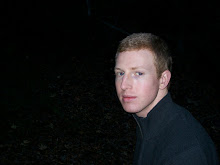"After a long silence, he nodded.
She sat
stricken, understanding that she had won. She had won badly.
She reached
across to him, trying to comfort him and herself. She was scared by the
darkness in him, his grief, his mute acceptance of betrayal. But it wasn't
betrayal - she rejected the word at once. She wouldn't betray him. They were in
love. They loved each other. He would follow her in a year, two years at the
most. They were adults, they must not cling together like children. Adult
relationships are based on mutual freedom, mutual trust. She told herself all
these things as she said them to him. He said yes, and held her, and comforted
her. In the night, in the utter silence of the desert, the blood singing in his
ears, he lay awake and though, 'It has died unborn. It was never conceived.'
They stayed
together in their little apartment at the School for the few more weeks before
Tiu left. They made love cautiously, gently, talked about history and economics
and ethnology, kept busy. Tiu had to prepare herself to work with the team she
was going with, studying the Terran concepts of hiearchy; Zhiv had a paper to
write on social-energy generation of Werel. They worked hard. Their friends
gave Tiu a big farewell party. The next day Zhiv went with her to Ve Port. She
kissed and held him, telling him to hurry, hurry and come to Terra. He saw her
board the flyer that would take her up to the NAFAL ship waiting in orbit. He
went back to the apartment on the South Campus of the School. There a friend
found him three days later sitting at his desk in a curious condition, passive,
speaking very slowly if at all, unable to eat or drink. Being pueblo-born, the
friend recognized this state and called in the medicine man (the Hainish do not
call them doctors). Having ascertained that he was from one of the Southern
pueblos, the medicine man said, 'Havzhiva! The god cannot die in you here!'
After a
long silence the young man said softly in a voice which did not sound like
his voice, 'I need to go home.'
'That is
not possible now,' said the medicine man. 'But we can arrange a Staying chant
while I find a person able to address the god.' He promptly put out a call for
students who were ex-People of the South. Four responded. They sat all night
with Havzhiva singing the Staying Chant in two languages and four dialects,
until Havzhiva joined in a fifth dialect, whispering the words hoarsely, till
he collapsed and slept for thirty hours.
He woke in
his own room. An old woman was having a conversation with nobody beside him.
'You aren't here,' she said. 'No, you are mistaken. You can't die here. It
would not be right, it would be quite wrong. You now that. This is the wrong
place. This is the wrong life. You know that! What are you doing here? Are you
lost? Do you want to know the way home? Here it is. Listen.' She began singing
in a thin, high voice, an almost tuneless, almost wordless song that was
familiar to Havzhiva, as if he had heard it long ago. He fell asleep again
while the old woman went on talking to nobody.
When he
woke again she was gone. He never knew who she was or where she came from; he
never asked. She had spoke and sung in his own language, in the dialect of
Stse."
--Ursula K. Le Guin, "A Man of the People," Four Ways to Forgiveness (Harper Perennial, 1995), pp. 153-155
